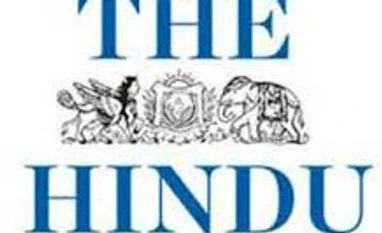The Hindu family feud sees another change at helm
N Ram to be chairman of KSL, N Ravi editor-in-chief of The Hindu; editor Varadarajan quits; CEO post abolished
)
It was decided that N Ram would become chairman of KSL and publisher of The Hindu and group publications, while his brother N Ravi would take over as editor-in-chief of The Hindu and N Murali as co-chairman of the company. Ram’s cousin, Malini Parthasarathy, would be the editor of The Hindu.
These decisions were taken by the board after Chairman N Ram’s casting vote went in favour of the changes, even as the 12 directors were divided, six each for and six against the resolution. It was learnt that the Narasimhan family — represented on the board by N Ram, N Ravi and N Murali — and the Parthasarathy family (Malini Parthasarathy, Nirmala Lakshman and Nalini Krishnan) voted in favour of the resolution. Against the proposed changes were the Rangarajan family (Ramesh Rangarajan, Vijaya Arun and Akila Vijay Iyengar) and the Kasturi family (K Balaji, K Venugopal and Lakshmi Srinath). When contacted by Business Standard, Venugopal refused to comment on the issue.
The newspaper also said Varadarajan, who had been brought in two years ago and was now being made contributing editor and senior columnist, had decided to step down. Varadarajan posted on microblogging site Twitter that he had resigned from the company. He said: “With The Hindu’s owners deciding to revert to being a family-run and -edited newspaper, I am resigning from The Hindu with immediate effect”.
Varadarajan commented that he disagreed with the assessments of Ram (who actually brought Varadarajan as editor for The Hindu) and went on to say that the editorial improvements in The Hindu which had taken place in the last two years, including coverage of Chennai and Tamil Nadu, are evident for everybody to see.
He said that the newspaper today is breaking more stories and has made its mark on both national and international reporting.
On the many changes being made, Ram said: “The board decided the CEO will no longer function as CEO,” adding transparency was missing and the board was taken for granted, big appointments were made and not reported. “Feeling of alienation was growing inside the organisation.”
When contacted, CEO Anant said he was still in discussions with the management and Murali, the new co-chairman, had said his future role was yet to be decided.
The six board members opposed to the board resolution made their stand clear to the employees by issuing a notice that they were opposing the changes in the editorial and business structure that sought to assign new responsibilities and designations to directors, Anant and Varadarajan. On Ram’s casting vote, the notice, signed by Venugopal, Balaji, Ramesh Rangarajan, Srinath, Arun and Iyengar, said: “The undersigned wish to declare this casting vote invalid and will contest the decision through an appropriate mechanism.”
On the background of the development, Ram said he was the prime initiator of the changes. “We realised we took a wrong decision two years back and we found we went off the rails on the business and editorial side. There are continuous violations of the framework of the values in handling industrial relations and reportedly recurrent violations of the code of editorial values of The Hindu,” Ram said, adding that several attempts were made to correct these and “we also found the editor was hardly in Chennai and he was unable to focus on Chennai, our headquarters, commercially or journalistically”.
The return to the family-run, family-edited way for The Hindu has has come after two years of two camps, led by N Ram and N Mulari, fighting battles — at the Company Law Board, Madras High Court and the Supreme Court — over control of the family-run media empire. Murali, the publisher and the MD, had resigned along with a few other board members after the court case did not end in their favour.
“Murali and I are hands on and we are entrusted with the responsibility of industrial relations now. First thing we did was come to an agreement on Diwali bonus for the employees,” he said. He added the bonus had been unduly delayed by the CEO. “Lack of transparency in performance and misleading the board were also the major reasons for abolishing the post.”
Murali said the Times of India had gained ground in Chennai and Tamil Nadu, while The Hindu’s market share had come down. Revenues were challenged, Times of India was taking away a large chunk of advertisement. “Some of the initiatives, taken in a hurry, had to face the consequence. The relationship with the employees was also hampered.”
More From This Section
Don't miss the most important news and views of the day. Get them on our Telegram channel
First Published: Oct 22 2013 | 9:16 AM IST
